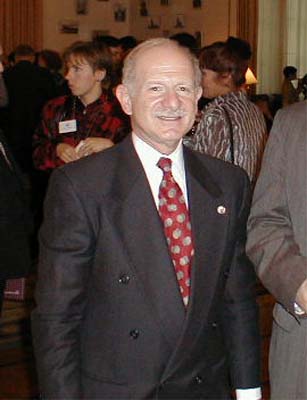
| By Admin1 (admin) on Thursday, June 27, 2002 - 9:12 pm: Edit Post |
Former Peace Corps Director Mark Schneider: "I strongly support the fundamental purpose of the Act"

Gaddi Vasquez, Director of the Peace CorpsRead and comment on the prepared statement by Mark Schneider on the New Peace Corps legislation at:
RPCV Mark Schneider, Former Peace Corps Director and Senior Vice President of the International Crisis Group
RPCV Dane Smith, President of the National Peace Corps Association (NPCA)
RPCV John Coyne, founder and editor of the Peace Corps Writers and co-founder of the Peace Corps Fund
RPCV Barbara Ferris, President of the International Women's Democracy Center and co-founder of the Peace Corps Fund
